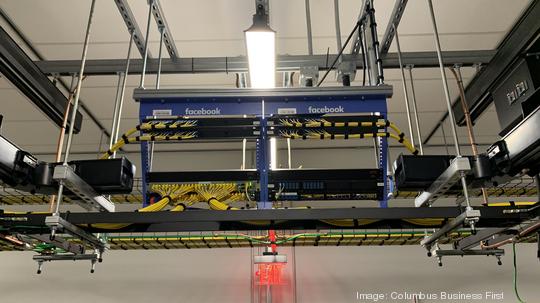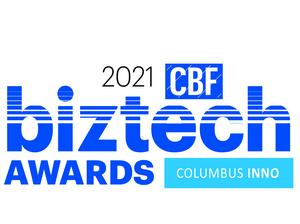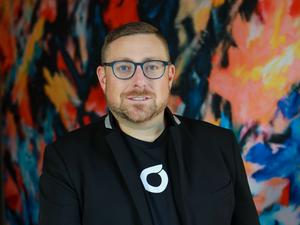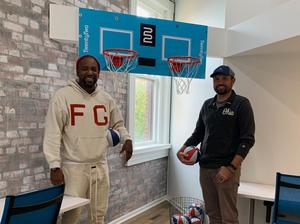
As Congress debates several bills to rein in the power of tech goliathans, a Facebook-backed group arguing that such regulations would harm the country has found its leader in Columbus.
Doug Kelly is the first CEO of American Edge Project, a nonprofit advocacy group with funding from a coalition of businesses and organizations and led by a bipartisan slate of former elected officials.
"We focus on telling the positive story of technology and innovation, and the critical role it has in our economy, our national security, and enhancing our American values," Kelly said. "I get to highlight amazing places like Columbus, what they’re doing in terms of a startup ecosystem."
Kelly started the job in November, coming from the Columbus consulting firm he founded after a career in Democratic Party politics and leading a large nonprofit.
Breaking up big tech companies would harm small businesses that relied on social media marketing and digital ordering systems to survive the coronavirus pandemic, he argued in an recent op-ed.
"It starts with the core premise that technology is not just a sector (of the economy), it is the backbone," Kelly said in an interview. "This is an extremely precious resource. ... We need to value and protect that, and we need lawmakers to value and protect that as well."
American Edge launched in spring 2020 with seed funding from Facebook Inc., the only donor identity confirmed in reporting by The Washington Post. Coalition members listed on its website include the National Small Business Association, Latino Coalition, National Black Chamber of Commerce, Financial Services Innovation Coalition, and fellow advocacy groups such as the free-market Center for Innovation and Free Enterprise and conservative Center for Individual Freedom.

American Edge is organized as a nonprofit "social welfare" organization, meaning that it does not lobby but can spend on advertising, and does not have to identify donors.
The advocacy group and related foundation have landed multiple funders, Kelly said. He declined to release the amount of the annual budget, and the group is too new for its annual nonprofit IRS returns to be available.
A coalition of 10 left-leaning policy groups including Public Citizen and Center for Digital Democracy – which wants more regulation of big tech – in June 2020 called for disbanding the "well-funded front group to advocate for (Facebook's) interests."
"People who say that don’t know what the American Edge Project does," Kelly said. "I didn’t need to wrestle with: What is this group really?"
Public Citizen has not changed its belief over the past year that big tech monopolies hurt the economy and that American Edge exists to serve big donors, said Lisa Gilbert, Public Citizen executive vice president.
“You only need to look skin deep in their website … there’s a clear bias, an intention in their organization, which is to make sure there is a lack of regulation in tech,” Gilbert said. “Facebook and the rest of the big four (tech companies) being unregulated is not necessarily a small-business goal.
"Big tech has control and a stranglehold on what people see, and that in turn impacts … how they move through the economy," she said. "This is not a condemnation of Doug Kelly’s character, it’s an assessment of tech in the world."
Learning from the past
Kelly grew up in a Michigan small town and moved to Columbus in 2007 as executive director of the Ohio Democratic Party, helping deliver the state for President Barack Obama's first term. In 2011 he became CEO of the nation's largest Make-A-Wish chapter, covering Ohio, Kentucky, and Indiana, and after six years became a full-time consultant.
His career before Ohio included the post of technology director for the Democratic National Committee.
"Folks who come from politics are used to playing at one speed," Kelly said. "The nonprofit sector, it’s more deliberate, more thoughtful, more inclusive, and I think I benefited from that. We tend to look at people from a partisan lens, and that nonprofit sector allowed me to look at people for who they are."
Kelly said he wants the U.S. to avoid repeating in technology the kinds of policy mistakes that devastated manufacturing in states like Michigan and Ohio, ending hundreds of thousands of jobs.
"That really hurt us globally," he said.
Bipartisan big-tech bills in the U.S. House and Senate grapple include grappling with privacy, data management and online harassment, as well as antitrust packages that could force the likes of Facebook and Google to break up.
"If we really wound our biggest assets, that’s going to create a vacuum for China," Kelly said. "Lawmakers don’t fully understand this tech sector and ask questions that are fundamentally incorrect at times.
"We want to make sure they’re aware of the amazing stuff happening in their own backyards."
Entities like Amazon or Google aren't like Standard Oil of a century ago, Kelly said; they're platforms that other businesses use to find customers, make sales and manage data.
Forcing breakups also discourages acquisitions, Kelly said, in turn dampening startup investment.
Tech companies "don't always get it right," he said. Several hearings have taken on the harm that content-picking algorithms can create, including a grilling of the Instagram chief last week.
"We want to be responsive on some of the challenges, some of the disruptions technology can cause," Kelly said. "What are smart things we can do that give some clarity and guidelines to tech companies?"







